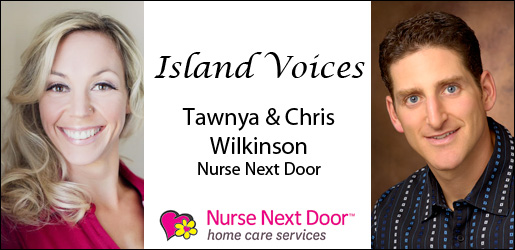Start the Conversation
Archive ∙ Back to Island Voices
November 2014
Do you know what advance care planning is? You should.
Advance care planning is when you or a loved one writes down your wishes and instructions for future health care. Basically, it’s a living will built around one’s beliefs, values and wishes. Advance care planning allows someone to express fully and thoughtfully their wishes for future health decisions.
Why is this so important? We see it all the time where people don’t have advance care planning in place and it makes it so difficult … difficult on their family most of all. How is someone supposed to make a potentially life or death decision about a loved one? It’s too tough.
Sometimes it’s not done because people are afraid to talk about their future health and mortality. Yet it is something we will all go through – health challenges and eventually death. It’s very healthy to talk about! We can’t be afraid to. We must have these discussions with our loved ones and friends.
There are a few primary tools to work with here. Advance care planning may include any or all of these tools:
- An Enduring Power of Attorney enables you to appoint someone to make decisions about your financial affairs, business and property, even if you become incapacitated. Contrary to popular belief, Power of Attorney (POA) does NOT allow health care decisions to be made.
- A Representation Agreement is for health care decisions. This is where you write your instructions and name someone to make your health and personal care decisions if you become incapable.
- An Advance Directive contains your instructions for health and personal care. This is given to your health care provider and must be followed directly when it speaks to the care you need at the time.
More information can be acquired online about these tools by simply searching ‘Advance Care Planning’. NIDUS is the site for a non-profit agency that provides very helpful information in this regard. As well, our Vancouver Island Health Authority provides detailed information and resources.
It may be best to speak with a lawyer regarding the Representation Agreement (health decisions) and the POA (financial decisions). An individual’s family physician may be the best resource for starting the discussion regarding the Advance Directive, although your lawyer’s advice may be ideal here too.
By far, the most important step is to start by having the discussion with your loved one. Questions like, “Have you thought about your future health wishes?”, or “Have you thought about what type of care you’d like to receive, or not receive, if you were incapacitated?” are a great place to start. It is so important, for everyone involved, to have these plans discussed, written down and formalized.
Start the conversation before it’s too late.


